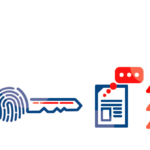
Transparency is central to good publication practices and to encouraging trust in pharma research. Given its increasing influence on regulatory and clinical decision-making, the time may have come to expect of real-world evidence (RWE) studies the same levels of transparency that are demanded of clinical trials.1,2
RWE studies have traditionally occupied the lower rungs of the evidence hierarchy and have been considered an unregulated ‘Wild West’ of evidence generation. Yet, well-designed RWE studies have considerable value. Although they lack the internal validity and robust means of assessing cause and effect that clinical trials provide, they offer important external validity.3 RWE studies reflect the patient and clinical realities of everyday practice, and they can also address questions that are infeasible to evaluate in the clinical trial setting owing to financial, ethical and/or commercial constraints. RWE and clinical trial data combine to provide a more complete evidence base for clinical decision-making.4 The evidence hierarchy is recast as a continuum; strengths and weaknesses as relative merits and limitations.
In recognition of this revised framework, RWE is increasingly informing regulatory and reimbursement decision-making.5 Although transparency mandates from drug regulators (e.g. the US Food & Drug Administration [FDA]) and recommendations from publishing bodies (e.g. the International Committee of Medical Journal Editors [ICMJE]) have historically focused almost exclusively on clinical trials,6,7 recent actions by the FDA suggest a possible turning of the tide. An era in which RWE studies are subject to transparency mandates similar to those for randomized controlled trials (RCTs) may be imminent.
In July 2023, the FDA approved an indication expansion for an approved medical device based solely on RWE from routine clinical practice.8 Hot on the heels of this landmark decision was the publication (in August 2023) of FDA guidance on the use of real-world data and RWE to support regulatory decision-making for drug and biological products.9 In this guidance, the FDA made a number of far-reaching recommendations for pharma industry sponsors seeking to submit non-interventional study data as part of their FDA marketing authorization application. The guidance covers transparency around data collection and analysis, access to patient-level data, study monitoring and safety reporting.
Box 1. Summary of selected FDA recommendations for the use of real-world data and RWE to support regulatory decision-making for drug and biological products9
| • Engage with the FDA early in the study design process and submit a draft study protocol and statistical analysis plan (SAP) for FDA review and comment. • Share final protocol and SAP documents with the FDA, and document and justify subsequent deviations. • Register the study protocol a priori in a public domain registry (e.g. ClinicalTrials.gov or the Joint Heads of Medicines Agency–European Medicines Agency (HMA–EMA) Catalogue of real-world data studies). • Share details of the study data source and rationale for selection (including feasibility evaluation and/or exploratory analyses). • Report characteristics of the source population and the study population, and note any differences that may impact the final study findings. • Report the results of the analysis as per the SAP, including additional and/or exploratory analyses. • Submit patient-level data to the FDA for any real-world data analysed as part of the clinical study. |
Reflecting the speed with which the regulatory landscape is evolving with respect to RWE, the FDA published further (draft) guidance last month for industry sponsors of non-interventional research.10 The latest FDA guidance pertains to the conduct of non-interventional studies intended to inform regulatory decision-making and describes important (not exhaustive) attributes of RWE studies that are important to consider to ensure determination of true treatment effects. Study design, data source selection, analytical approach and ethical considerations are included in the guidance, and sponsors are strongly encouraged to engage with the FDA during the early stages of study design to clarify expectations and circumvent potential problems.
The various FDA recommendations build on previous initiatives intended to nudge non-interventional study practices closer to those mandated for clinical trials. The International Society for Pharmacoeconomics and Outcomes Research (ISPOR) and the International Society for Pharmacoepidemiology (ISPE) Joint Special Task Force, for example, published recommendations in 2017 that called for RWE studies testing a specific hypothesis to adopt transparency commitments similar to those required for RCTs, including prior study protocol registration and publication of results.11 More recently, tools have emerged to support robust RWE study protocol development (HARmonized Protocol Template to Enhance Reproducibility [HARPER])12 and reporting (structured template for planning and reporting on the implementation of RWE studies [STaRT-RWE]).13
The FDA recommendations not only consolidate previous initiatives but also raise the bar. For instance, research sponsors are now not only being advised to justify their data source selection and to consider and disclose potential sources of bias, but also to share patient-level data, regardless of data ownership. To date, publishers have generally been willing to consider data-sharing exemptions for RWE studies where the sharing of patient-level data (during peer review or on publication) would breach data ownership and/or licensing restrictions. The FDA recommendations make clear that no such exemption would be valid for data submitted as part of a marketing authorization application.
It is important to note that the FDA recommendations on data sharing are currently non-binding and apply only to RWE submitted as part of a marketing authorization application. Yet, the widescale adoption by publishers of the ICMJE data sharing statement demonstrates the potential for trickle-down effects. The original statement pertained only to the sharing of patient-level data from RCTs, but journals now routinely impose ICMJE data-sharing requirements for all clinical studies submitted for publication. It is therefore plausible that the recent FDA recommendations for RWE studies may have a similar knock-on effect.
Within this evolving landscape, it is pertinent to consider the role that Open Pharma should have. Open Pharma is a champion of initiatives that drive positive change in the communication of pharma-sponsored research. Its role may simply be one of watchful waiting. Alternatively, Open Pharma could play a more proactive part – one that empowers and enables pharma publication professionals so that they’re ready to ride the RWE transparency wave when the tide finally turns.
References
- White R. Building trust in real world evidence (RWE): moving transparency in RWE towards the randomized controlled trial standard. Curr Med Res Opin 2023;39:1737–41.
- White R. Building trust in real-world evidence and comparative effectiveness research: the need for transparency. J Comp Eff Res 2017;6:5–7.
- Price D, Roche N, Martin R, Chisholm A. Feasibility and ethics. Am J Respir Crit Care Med 2013;188:1368–9.
- Roche N, Reddel HK, Agusti A et al. Integrating real-life studies in the global therapeutic research framework. Lancet Respir Med 2013;1:e29–30.
- Purpura CA, Garry EM, Honig N et al. The role of real-world evidence in FDA-approved new drug and biologics license applications. Clin Pharmacol Ther 2022;111:135–44.
- US Health and Human Services Department. Clinical trials registration and results information submission. 2016. Available from: https://www.federalregister.gov/documents/2016/09/21/2016-22129/clinical-trials-registration-and-results-information-submission (Accessed 10 April 2024).
- International Committee of Medical Journal Editors, clinical trials. 2018. Available from: https://www.icmje.org/recommendations/browse/publishing-and-editorial-issues/clinical-trial-registration.html#two (Accessed 10 April 2024).
- US Food & Drug Administration. FDA roundup. 2023. Available from: https://www.fda.gov/news-events/press-announcements/fda-roundup-july-21-2023. (Accessed 10 April 2024).
- US Food & Drug Administration. Considerations for the use of real-world data and real-world evidence to support regulatory decision-making for drug and biological products: guidance for Industry. 2023. Available from: https://www.fda.gov/regulatory-information/search-fda-guidance-documents/considerations-use-real-world-data-and-real-world-evidence-support-regulatory-decision-making-drug (Accessed 10 April 2024).
- US Food & Drug Administration. Real-world evidence: considerations regarding non-interventional studies for drug and biological products. Guidance for Industry. 2024. Available from: https://www.fda.gov/media/177128/download (Accessed 10 April 2024).
- Berger ML, Sox H, Willke RJ et al. Good practices for real-world data studies of treatment and/or comparative effectiveness: recommendations from the joint ISPOR-ISPE Special Task Force on real-world evidence in health care decision making. Pharmacoepidemiol Drug Saf 2017;26:1033–9.
- Wang SV, Pottegard A, Crown W et al. HARmonized Protocol Template to Enhance Reproducibility of hypothesis evaluating real-world evidence studies on treatment effects: a good practices report of a joint ISPE/ISPOR task force. Pharmacoepidemiol Drug Saf 2023;32:44–55.
- Wang SV, Pinheiro S, Hua W et al. STaRT-RWE: structured template for planning and reporting on the implementation of real world evidence studies. BMJ 2021;372:m4856.
- Taichman DB, Sahni P, Pinborg A et al. Data sharing statements for clinical trials: a requirement of the International Committee of Medical Journal Editors. The Lancet 2017;389:e12–4.
Richard White is Chief Operating Officer of Oxford PharmaGenesis.
Alison Chisholm is a Communications Team Leader at Oxford PharmaGenesis.






